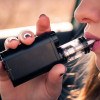Trauma and Addiction: The Harmful Relationship Hidden in Plain Sight

Trauma can change your life and the life of your loved ones in an instant. But it’s what happens afterward that can continue to change the course of your life forever.
For trauma sufferers, the need to experience an “escape” from the painful memories or events can cause them to turn to substances as a means to try to resolve conflict from their past. In fact, researchers say approximately 50 percent of people seeking addiction treatment also meet the criteria for PTSD.
Trauma response results from varying experiences–anything from a personal struggle to an emotional loss, a horrifying moment or an accident we never expected. These moments challenge our willpower and often our resources to cope.
A person who has experienced trauma may feel constant anxiety or a loss of control. While the stress, guilt, or shame associated with trauma don’t necessarily cause addiction, these emotions can often result in those already struggling with addiction to become more vulnerable as well as present barriers to addiction recovery.
That’s why further research has found treating post-traumatic stress disorder and addiction in tandem is most effective for helping those who’ve experienced a traumatic event cope with their experience. Treatment programs, like Caron Treatment Centers, work to integrate individualized treatment plans that meet each patient’s unique needs.
At Caron, psychologists and trauma specialists use evidence-based treatments to address PTSD and trauma symptoms like Cognitive Processing Therapy, Prolonged Exposure Therapy, and Dialectical Behavior Therapy. Caron’s specialty group therapy sessions help address anxiety, depression, and cravings in a safe, peer-to-peer setting. Plus, trauma-sensitive yoga and art therapy groups help individuals channel their emotions into a relaxing medium.
With comprehensive treatment and aftercare plans, like those offered at Caron, patients learn the importance of addressing their trauma in a healthy way, even after treatment has ended.
If you are a family member or a friend of someone with a substance use disorder, professionals like those at Caron Treatment Centers can help identify the symptoms of trauma responses and PTSD via psychological assessment. Once their team identifies if trauma exists they’re able to individualize a treatment plan that targets the root cause of addiction holistically.
Helping a loved one starts with you. Offering support and understanding by providing a listening ear and encouraging them to visit a group, therapy, or treatment center like Caron Treatment Centers, is a key way to help them move forward.
For more information, or to schedule a consultation with an addiction specialist, visit caron.org.
This is a paid partnership between Caron Treatment Centers and Philadelphia Magazine


